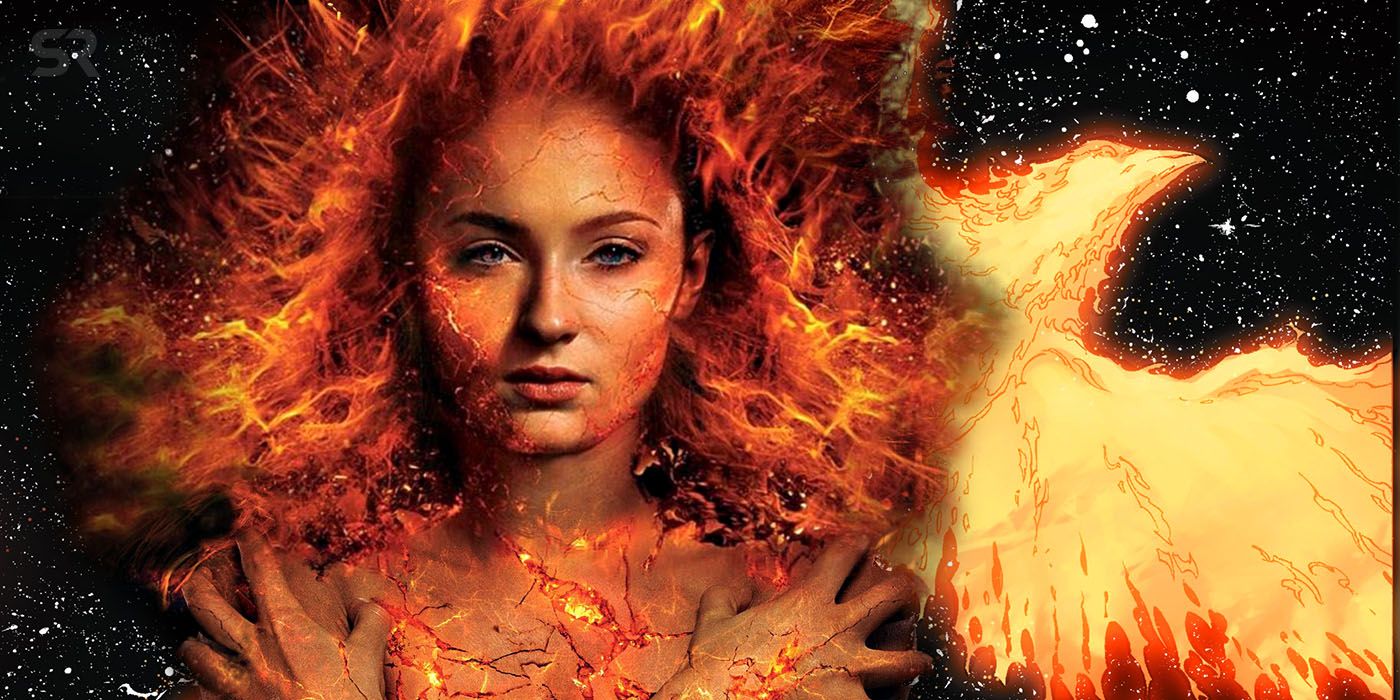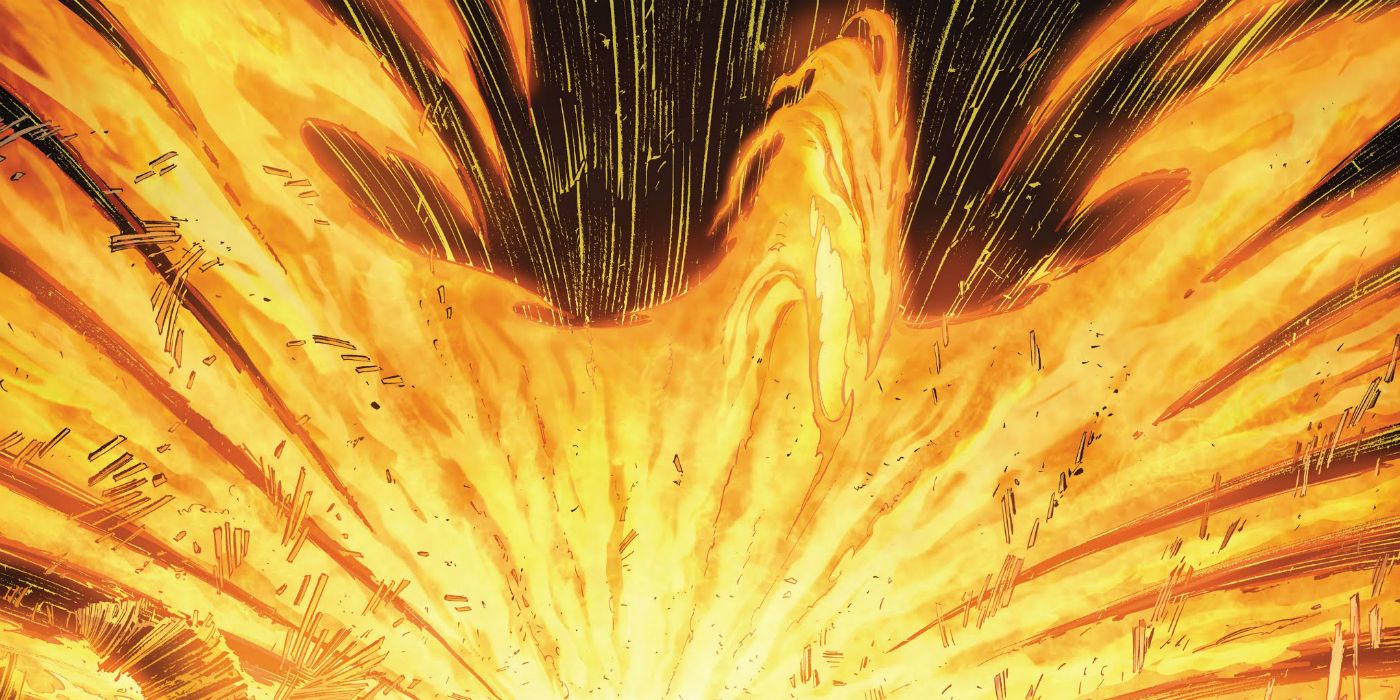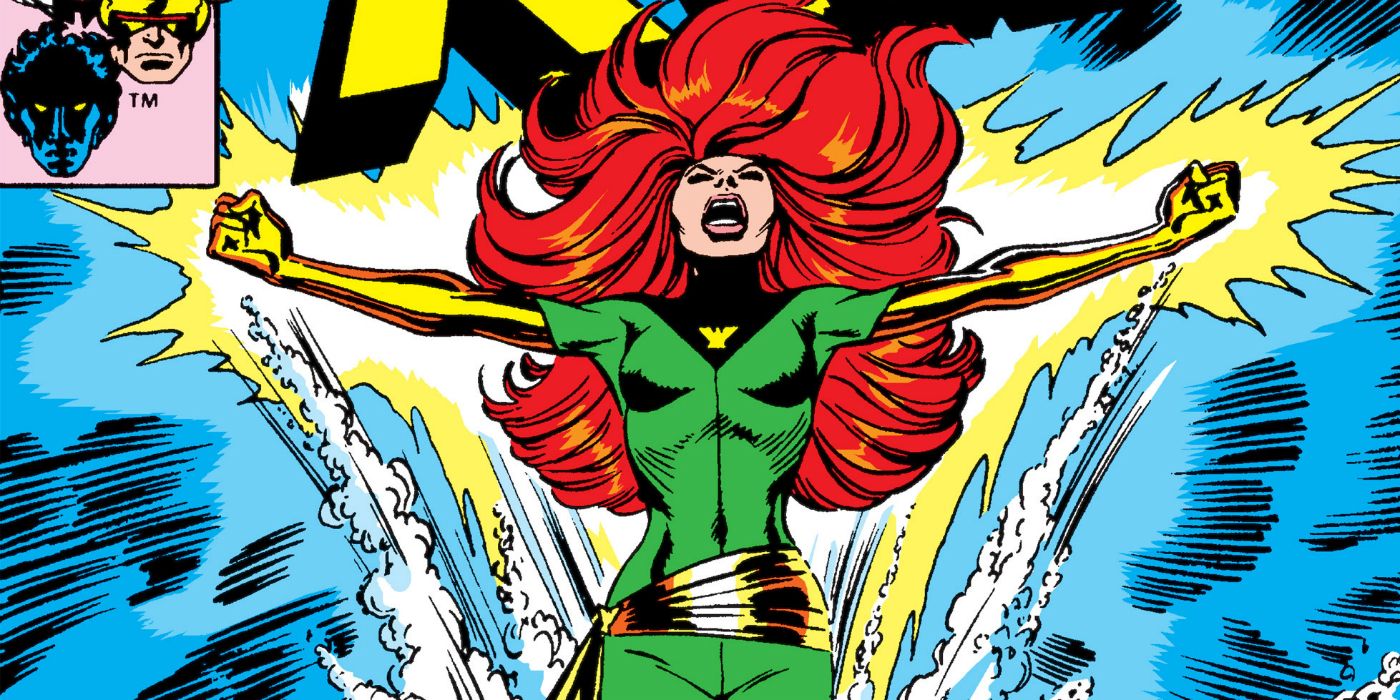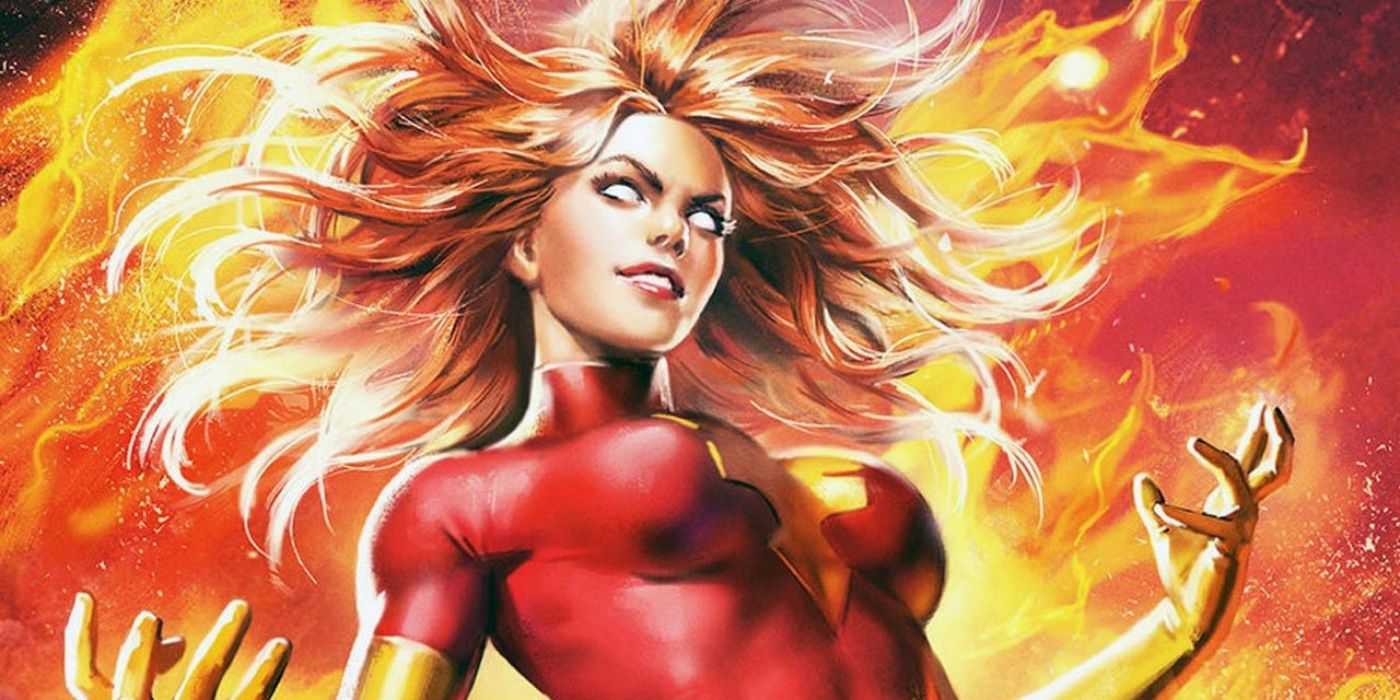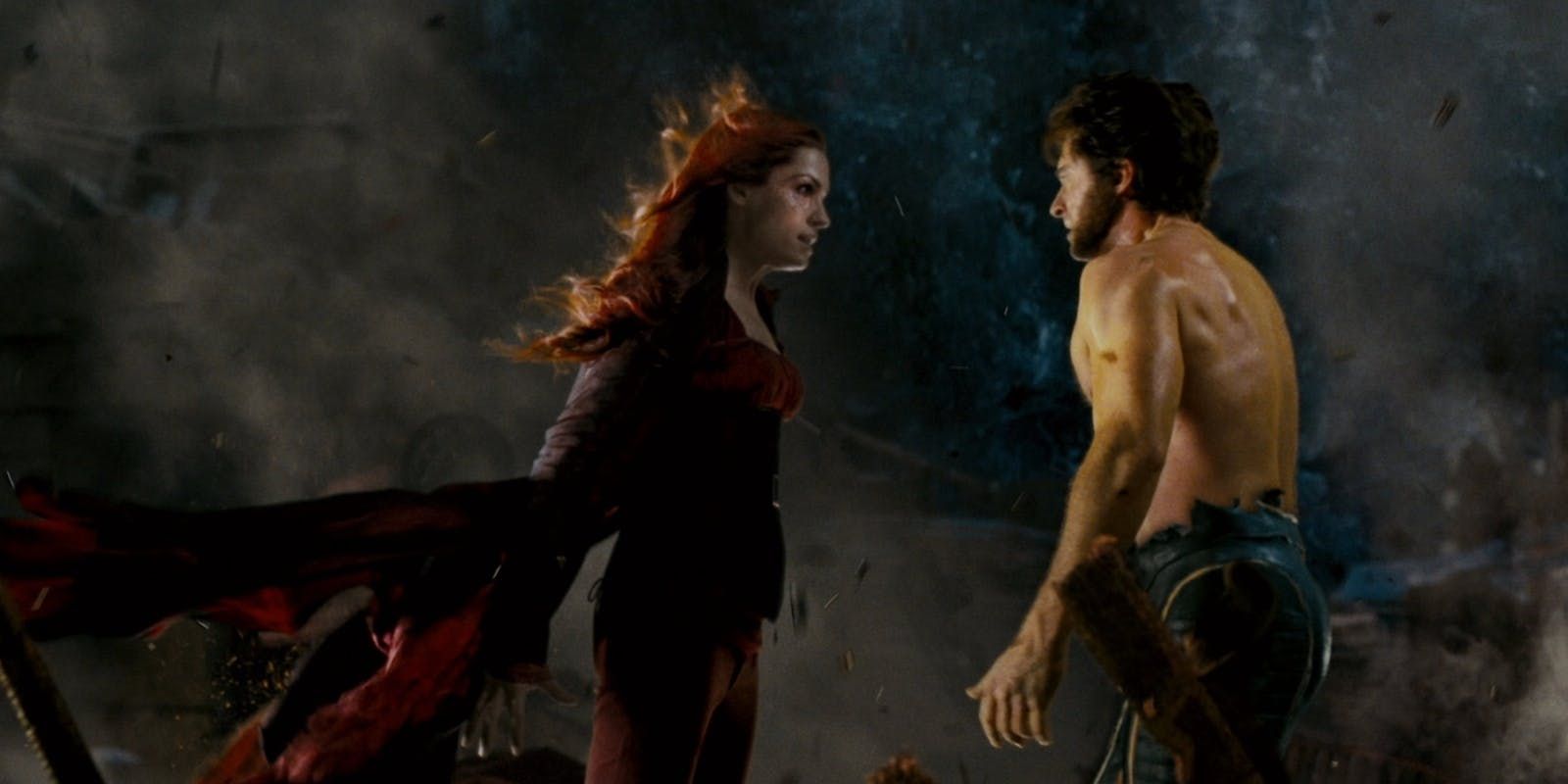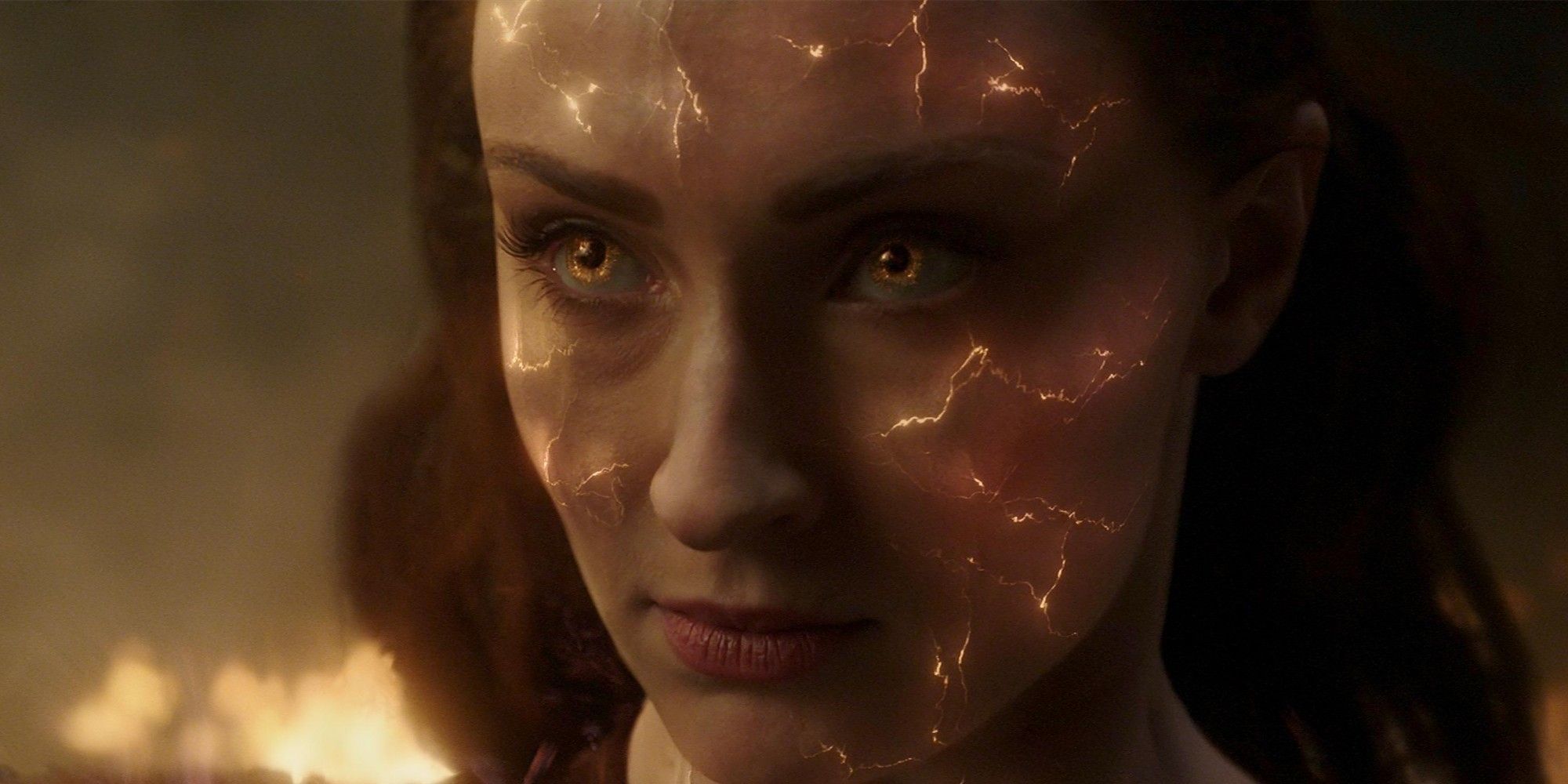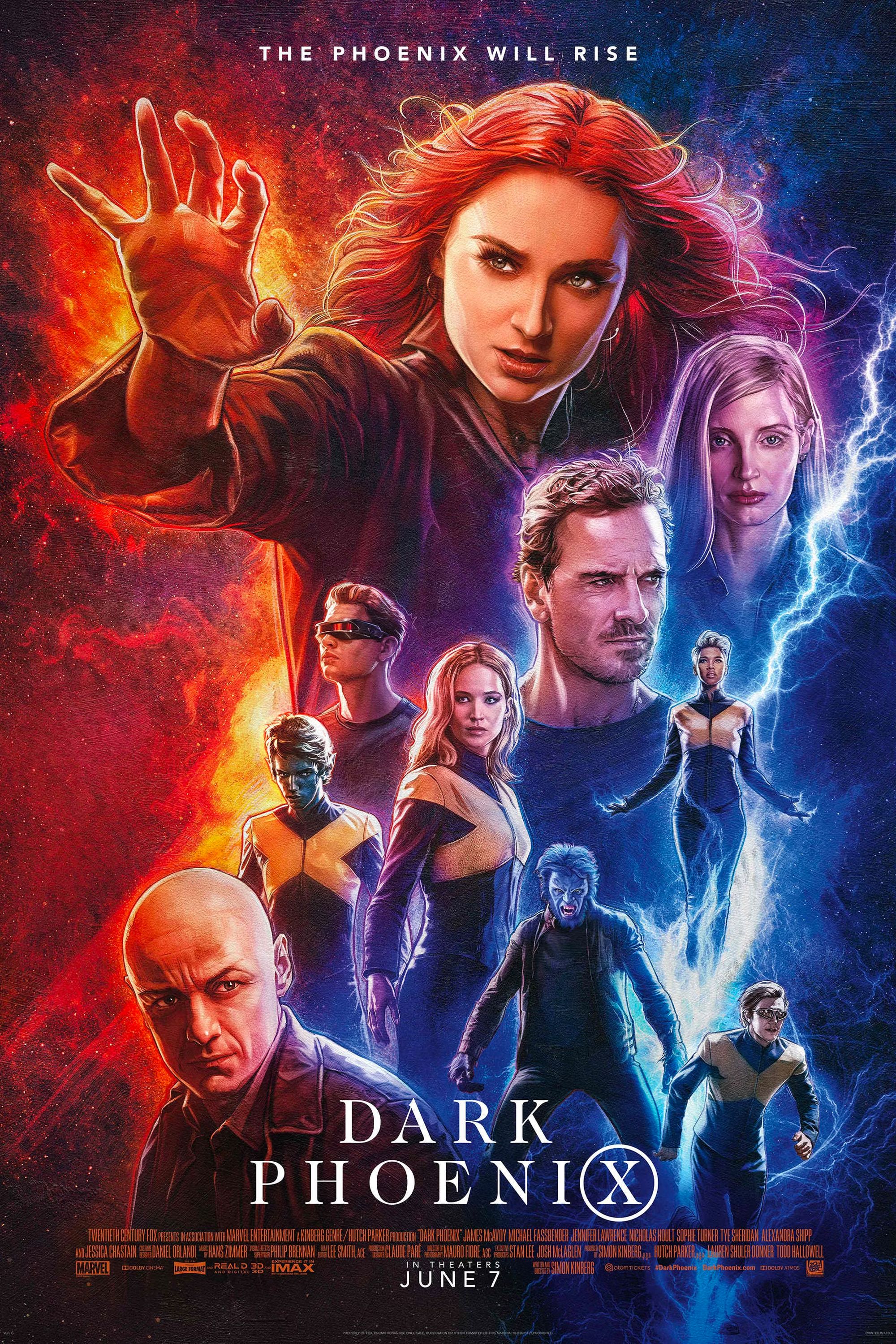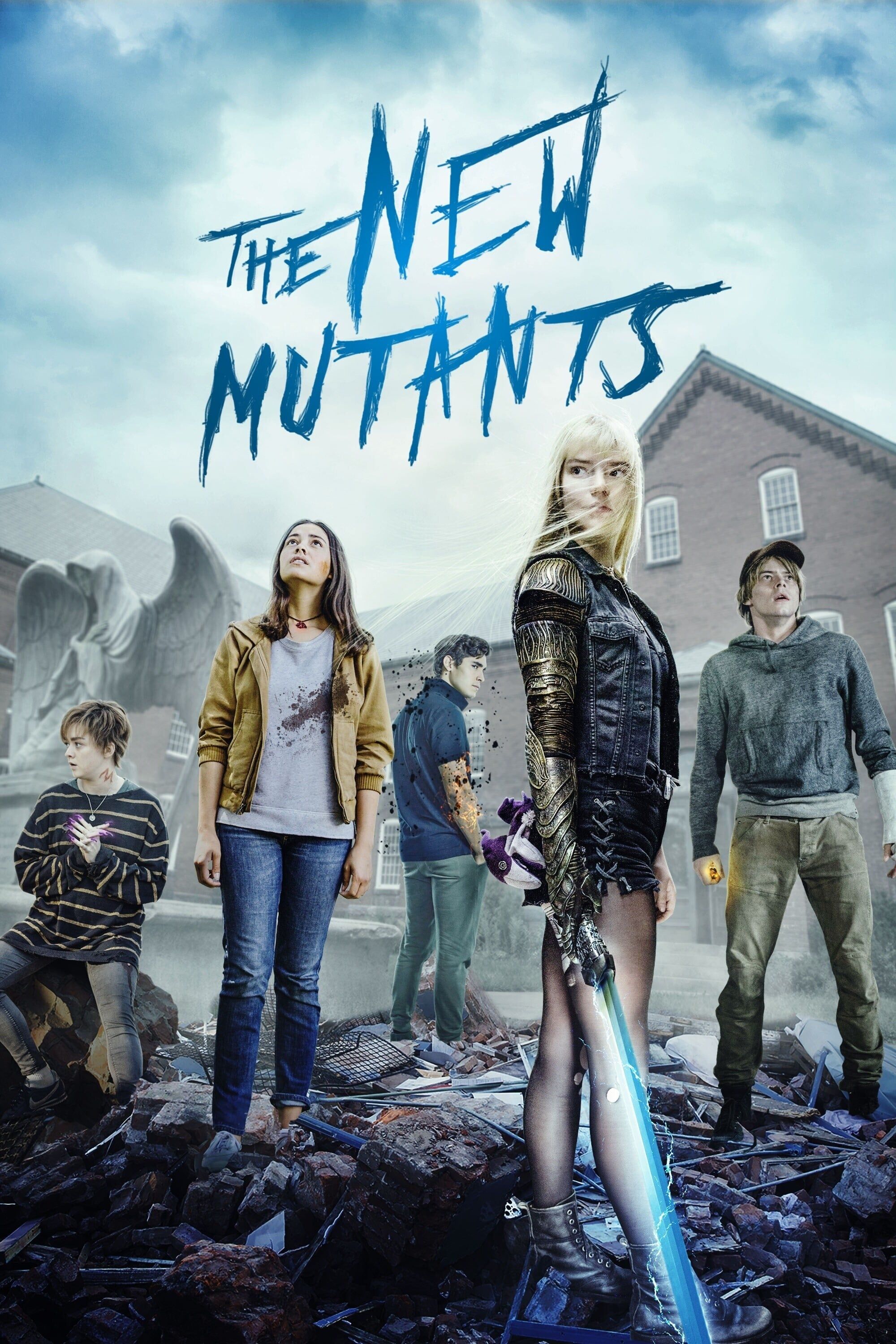The Phoenix Force is about to take center-stage in X-Men: Dark Phoenix - so just what is this cosmic entity? The Phoenix Force is a central part of the X-Men's mythology in the comics, and tied particularly to the character of Jean Grey. As a result, it's no surprise that the story of the Phoenix has been adapted into Fox's X-Men movies. What is rather more surprising, though, is that it's now about to be adapted for the second time.
The problem with the Phoenix Force is that it's not easy to pin down exactly what it is. The Phoenix has been the subject of countless retcons over the years, weaving it into the ancient history of the Marvel Comics universe. In the most recent retcon, Jason Aaron's Avengers run has revealed that a Phoenix host was a member of the original Avengers, all the way back in 1,000,000 BC, and was even briefly Odin's lover.
Related: Everything Dark Phoenix Has Copied From X-Men: The Last Stand
Given that the Phoenix is about to return to the big screen, this is the perfect time to cast our eyes over the history of this cosmic force. Where does the Phoenix Force come from, what is its role in the universe, and why is it tied so strongly to Jean Grey?
- This Page: The Dark Phoenix Force in the Comics
- Page 2: The Dark Phoenix Force in the Movies
The Phoenix Force Comic Origin Explained
The Phoenix Force is one of Marvel's most powerful cosmic entities. It is said to have been "born of the void that exists between states of being," and is a nexus of all the psychic energy of the entire Multiverse. It essentially serves as the guardian of evolution, burning away the old in order to give life to the new. The Phoenix's power is so great that it can burn away entire timelines, realities where evolution has slowed to a crawl. Indeed, according to The Phoenix Force Handbook, the Phoenix has been doing this for longer than the universe itself has existed:
In the dying moments of the previous universe, the "Big Crunch," the M'kraan Crystal - a hypercubical nexus of realities - was shattered, bringing the entire multiverse to an end. However, the Phoenix Force saved all of the dying universe's inhabitants from eternal damnation.
The Phoenix Force appears to be drawn to select hosts - beings of tremendous psychic power. Curiously enough, human hosts tend to be females with red hair. It also has a preference for Earth, perhaps because it sensed humanity's unique potential for change and evolution. It is particularly invested in mutants, which it perceives as the future of the human race; when the mutant race was brought to the verge of extinction, Phoenix fire blazed across the planet to reignite the X-gene. Every time the Phoenix exerts itself, though, there is a cost; it draws upon psychic energy from elsewhere in the Multiverse, and the energy it uses prevents entire realities coming into being.
According to the Shi'ar, the Phoenix is destined to be The End of All That Is - the cosmic force that will wind down this universe, destroying it in order to ignite the next Big Bang and begin our successor. Many races fear the Phoenix, understandably afraid that its judgment will befall their world and it will consume them. Still others point to the Phoenix's increasing activity as an indication that the end of the universe is approaching.
Related: X-Men Theory: Jessica Chastain Is The Real Dark Phoenix Force
The Phoenix Force Takes Over Jean Grey
The Phoenix was first introduced in Uncanny X-Men #101, when it was tied to Jean Grey. The X-Men had been trapped aboard an orbital space-station, and although they had managed to escape in a shuttle, they were forced to fly through a solar flare. Jean Grey chose to sacrifice herself for her friends, using her telepathic powers to steal the knowledge of how to pilot the shuttle from the mind of an astronaut. With her friends safe in a shielded compartment, she flew straight through the flare, and seemed to be consumed by its energy. The shuttle crash-landed in Jamaica Bay, and the X-Men struggled out of the water. To their amazement, they watched as Jean emerged from the waters, declaring herself to be a whole new entity: fire and life incarnate, the Phoenix.
In truth, writer Chris Claremont wasn't really clear on what had happened to Jean at this stage. He'd wanted to give the X-Men a power-up so he could take them on space-faring adventures - a Thor analogue that allowed him to toy with chaos on a cosmic scale. Some of the comics implied Phoenix was part of a mutation, and that the true power of Jean Grey that had always been there but had been locked away. Others hinted that a cosmic entity had bonded with Jean in the fire, transforming her and making her its host.
It all ended in tragedy, of course. Jean Grey fell under the influence of a mutant called Mastermind, who used illusions and hallucinations to warp and twist her psyche. He unwittingly transformed Phoenix into Dark Phoenix, a savage and voracious entity who literally consumed an entire star-system. "The Dark Phoenix Saga" came to a head with Jean Grey choosing to commit suicide rather than risk the return of Dark Phoenix.
The Phoenix Force Was Retconned In X-Men Comics
"The Dark Phoenix Saga" was the product of creative differences behind the scenes. Claremont had originally intended for Jean Grey to be left depowered as penance for her crimes, but editor Jim Shooter wasn't impressed with that idea. When he learned that Dark Phoenix had destroyed an entire star system, committing genocide when she wiped out an inhabited planet in the resulting supernova, he insisted that depowering wasn't enough. In the end, Marvel settled on killing Jean as a last resort in order to end the disagreements. Crucially, Shooter insisted that Jean could only return from the dead if a writer found a way to absolve her of Dark Phoenix's sins.
Related: Here's How Marvel Just Brought Original Jean Grey Back to Life
Naturally, that edict simply meant future writers saw bringing Jean Grey back as a challenge. It was Kurt Busiek who finally came up with the idea for how to pull it off. He suggested that Jean Grey had never been Phoenix at all; rather, the real Jean had been replaced by the cosmic entity known as the Phoenix Force, which had sought to know what it was to be human. Injured due to her experience in the solar flare, the real Jean had been kept safe in a restorative cocoon at the bottom of Jamaica Bay.
This actually turns the themes and concepts of "The Dark Phoenix Saga" on their head; in the original comic, it is Jean's humanity that enables her to commit suicide and prevent the return of Dark Phoenix, whereas this retcon establishes the humanity as the flaw introduced into the Phoenix Force that led to its temporary insanity. Marvel went with this approach, and as a result the Phoenix could be treated as a separate entity to Jean Grey. All that cosmic mythology was established in the years that followed, and Marvel writers continue to add new layers to it every year.
Page 2 of 2: The Phoenix Force in the Movies
The Phoenix Force in X-Men: The Last Stand
Comic book fans have tended to argue that superhero films should "stick to the source material," but writers and directors have always found that quite challenging. For one thing, an idea doesn't necessarily translate effectively from one medium to another. In the case of the Phoenix Force, though, the situation is even more complicated. Claremont's original comics were very unclear as to just what the Phoenix was in the first place; was Jean suffering from some sort of Dissociative Identity Disorder? Or was she the host of a cosmic force? The retcons only added further complexity to the issue of adapting "The Dark Phoenix Saga," given they involved Jean's actually being replaced by the Phoenix Force.
X-Men: The Last Stand ditched the cosmic side of the Phoenix Force altogether. It treated Jean as a mutant of almost unlimited telepathic and telekinetic potential, who had developed multiple personality disorder. Sensing the risk, Charles Xavier had used his own psychic barriers to lock Jean's abilities down, and to restrain her alternate persona. But a near-death experience had unlocked both the power and the personality, and Jean became Phoenix. As Simon Kinberg told The New York Times, she became the embodiment of the Electra Complex, the opposite of the Oedipus Complex: a condition where some young women become unnaturally attached to their fathers and yet secretly wish to kill them and destroy everything that stands for them in order to assume their power. Phoenix killed Professor Xavier and sided with Magneto, before finally being killed by Wolverine.
Related: Dark Phoenix's Jean Grey Looks Worryingly Like X-Men: The Last Stand's
Kinberg has recently reflected that The Last Stand's greatest weakness was its failure to go cosmic. "I think that was a time in superhero movies where that just wasn't being done," he noted, "and now we live in a time with Guardians of the Galaxy, Thor: Ragnarok and so many comic book movies are interstellar and cosmic." He has a point; it has to be remembered that, before the success of the X-Men and Spider-Man franchises, the cheesiness of Batman and Robin had briefly been believed to have killed off the entire superhero genre. That's the reason the X-Men never wore spandex and didn't go into space.
The New Version In X-Men: Dark Phoenix
X-Men: Dark Phoenix appears to be taking a more nuanced approach, just like the original comics. Many of the basic plot points seem to be similar; Jean is still a powerful young mutant who has suffered trauma, in this case the deaths of her parents when her powers were triggered. Fearing Jean's power, Xavier used his own abilities to lock them down and - it's hinted in the trailers - even erase her memory that she was responsible for her parents' deaths. Those psychic barriers began to break down in the third act of X-Men: Apocalypse, when Jean unleashed her power in order to defeat the titular villain. This time round, though, there is also clearly a Phoenix Force. Just as in the comics, Jean is caught up in a solar flare, and emerges unscathed but transformed and unstable.
Actress Sophie Turner has treated this as a kind of Dissociative Identity Order, spending a lot of time researching mental health. As she explained:
"As soon as Simon [Kinberg] kind of told me what the movie was about we just started straight away sharing ideas, sharing materials. Simon gave me a big, big book on schizophrenia. I actually found this thing online, on YouTube. And it was just kind of repeating, repeating, repeating, what it sounds like being a schizophrenic. So I used to walk around town with all these voices in my head. Kind of feel it out. And see what it felt like. We also explored Multiple Personality Disorder as well. And what that feels like to kind of wake up and not know what you did, What happened and that shear panic and how that affects you. Jean is just... this movie... She's so, so, layered. She's so complex in this movie. I really don't think that I've done more research for a role than for this one and I loved every minute of it."
Related: Dark Phoenix's Trailer Makes A Big MCU Joke
What's unclear, at this stage, is whether this other personality has been a part of Jean for a long time, kept in check until after the solar flare, or whether it is actually the Phoenix itself. Given that Kinberg has stressed the cosmic aspect of X-Men: Dark Phoenix, the latter seems likely; that Jean has become a host for a malevolent entity that is influencing her and amplifying her powers. Indeed, it's been theorized that Jessica Chastain's unidentified villain could be the Phoenix Force. She could simply be the psychic manifestation of the Phoenix persona, the entity Jean is being tempted and sometimes controlled by. At this stage that's just a theory, of course, but it fits the trailers well.
One thing is clear, though - X-Men: Dark Phoenix isn't going to dive headfirst into all the cosmic mythology of the Phoenix Force. Doing so probably wouldn't fit very well with the grounded tone and style of Fox's X-Men film franchise. Rather, it looks to have taken the "multiple personality" concept and added a layer of cosmic complexity to it. It remains to be seen how effective that is, and how the fans react to it.
More: Every Marvel Movie & TV Show Coming In 2019

